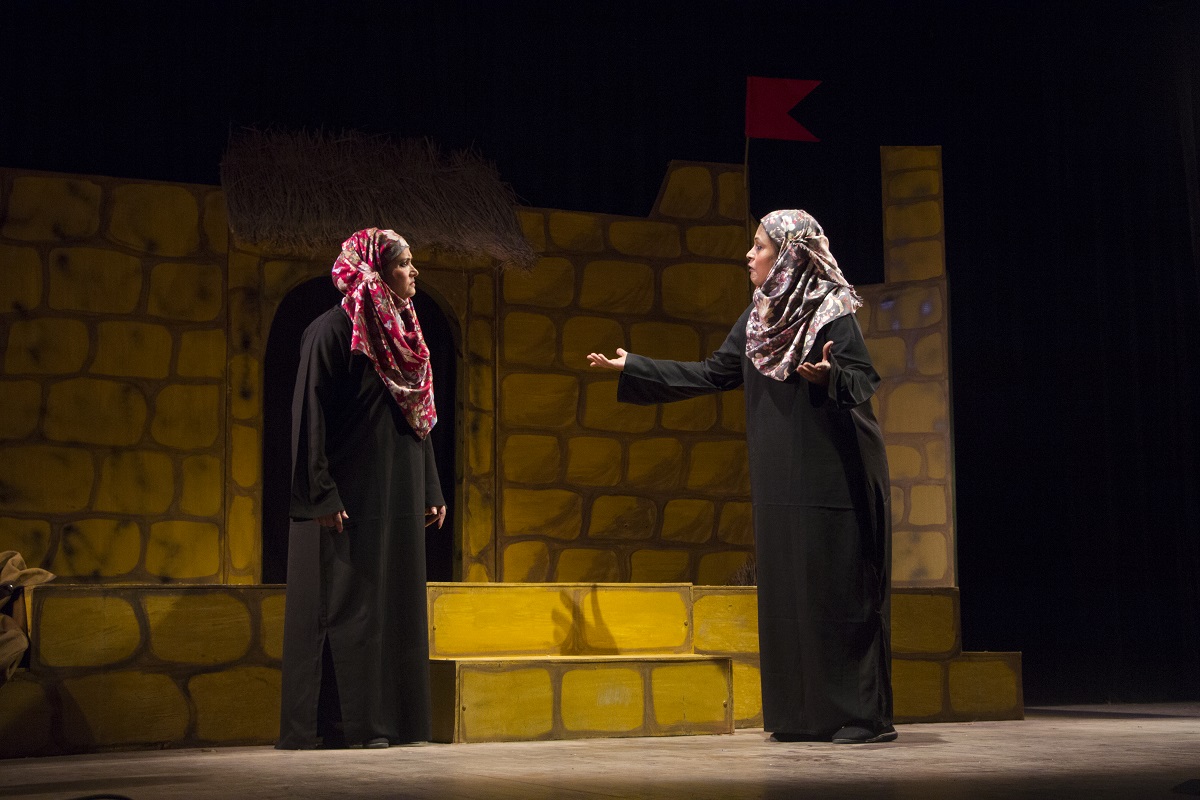AAKRITI commemorate 20 years of journey with Bengali Theatre
During the last 20 years Aakriti has staged 29 productions and won 60 awards all over India which includes Delhi-NCR, Lucknow, Allahabad, Kanpur and Chandigarh.
Talking to The Statesman, Shyamal Talukdar, president of Aakriti said despite resource crunch, it is their constant endeavor to stage plays with an off-beat theme with an innovative presentation for the audience, especially the younger generation.

The story is set in the backdrop of a remote village in Egypt. (SNS)
On the occasion of their Annual Night celebration, Drama Society Aakriti staged Ghar and Baansh, two micro plays and Mrityu sangeet, a one-act play, in Bengali, at Muktadhara Auditorium, New Delhi recently. All the plays ware written, designed and directed by renowned director Souvik Sengupta.
Talking to The Statesman, Shyamal Talukdar, president of Aakriti said despite resource crunch, it is their constant endeavor to stage plays with an off-beat theme with an innovative presentation for the audience, especially the younger generation. “We are trying to explore newer horizons in the field of theatrical art, experiment with unorthodox content and innovative form for our productions,” he said.
Advertisement
The first presentation, the play Ghar, deals with a serious subject. It’s the story of a Hindu family hosting a Kashmiri student in Delhi and shielding him from the hate-spewing in the country in the aftermath of the Pulwama incident.
Advertisement
Mahua Ghosh as the landlady and Manabi Chanda as the daughter did justice to the roles they played. Their rap session– argument and counter-argument enhanced the quality of the play. Prashan Singh Tomar as the Kashmiri boy made a mark with his short appearance. His looks made the character believable and he stole the heart of the audience with his measured acting. The lighting was appropriate and the sound effect, especially the flute-playing exalted the ambiance of the play.
The next one, a comedy play Baansh- was a hilarious tale of two robbers in a village on their mission to rob a bank who get tutored on the art of robbing by the branch manager.
The sound effect set the hilarious mood of the play. Dakshina Ranjan Chattopadhyay as Bank Manager, Ashis Shome as Manager’s Assistant, Amitava Mitra and Arunava Sengupta (two robbers) all fitted to the characters’ roles and performed very well.
The third play of the evening, Mrityu-sangeet is the Bengali adaptation of prominent Egyptian writer Tawfiq al-Hakim’s play Song of Death. Written in 1952, Song of Death belongs to the social realist phase. The enthralling storyline captured the two most important feelings – revenge and forgiveness. It’s the story of a mother’s obsession for vengeance over her husband’s death. With an awesome theme and screenplay, the generation gap and its consequences can be seen.
The story is set in the backdrop of a remote village in Egypt. Two warring clans – Azizi and Tahaus – are at loggerhead with each other for long. Afsin was happily married to Mostafa, the head of the Azizi clan, who was brutally killed by the opposing clan. To protect her two-year-old son from further harm, a devastated Afsin sent him to Cairo. From that day onwards, her only mission becomes revenge. The play opens up with a conversation between Afsin and her sister-in-law Sumaiya, both anxiously awaiting Firas’s return to the village. Afsin expects her son Firas to fulfill his familial duties and take avenge by killing the head of Tahaus, the killer of his father. Firas returns home after 17-long years as an educated and enlightened man. Overjoyed Afsin has been waiting for this day. When Firas reaches home, Afsin urges him to avenge his father’s murder. But alas!! Instead, he asks why she didn’t ask the authorities to prosecute the killer. He tells his mother that he has returned to his village in hopes of educating the villagers to stand up for their rights and improve their standard of living. Firas refuses to do her bidding and leaves home. Afsin instructs Zamil, his cousin, to go to the station while he was leaving and induces him to kill Firas. When the deed is done, while returning he was singing the song of death. The play ends with the tragedy of Afsin falling to the ground clutching a vial of poison in her grip.
Director created some magic moments on stage by mesmerizing lighting, sound, and costume. The intelligent use of light and sound caught the different moods of the characters and accentuated the atmosphere in the play. The sound of the train, the whistling of it has always a different meaning in accordance to the scene. The stagecraft was in tune with the play.
In terms of acting, Aparna Banerjee in the role of Afsin performed with self-confidence. Her expression, gesture, body language helped bring out the intricacies of the character she played. Seshadri Mitra as Firas, Sanghita Shome as Sumaiya, Sidharth Chatterjee as Zamil did justice to their roles. Enacting such a high-strung drama has a tendency for the players to overdo the acting part. Here, the Director kept them under a tight leash.
Advertisement